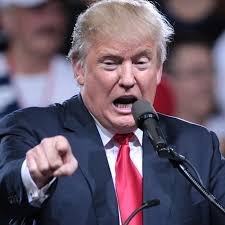Will incoming U.S. President Donald Trump usher in a new era of US-Russia cooperation? Many in Russia think so, as do some in the US. But early signs warn the time ahead could become more volatile than before and cooperation could come at a high price.
Is it within Trump’s power to change US-Russia relations? Certainly, and he is unlikely to feel constrained by public opinion or Congress. Going against the “conventional wisdom” was the hallmark of his successful campaign, making the unthinkable thinkable by giving it voice. And while Congress will likely not be happy with a radical shift on Russia, this body has few effective teeth for stopping it. And a European Union in crisis is also poorly positioned to constrain the new American president.
So what might the president-elect do? Despite his tendency to change stance and contradictory views among key administration picks, one thing seems clear: Trump is a pragmatist to the extreme whose focus is mainly domestic. This is important: It means “normalization with Russia” is unlikely to be a policy end in itself. Instead, Russia will be engaged instrumentally where Trump feels it could be useful for the domestic policies he prioritizes.
Will an instrumental Russia policy promote US-Russia cooperation? In some areas, yes. Scaling down American commitments worldwide to focus on domestic issues will offer an ambitious Russia new chances to play a larger role in world politics–potentially even with Trump’s blessing if it means getting Russia to do his “dirty work” abroad with no cost to the budget. Moreover, a Trump who expresses little concern about the niceties of democracy and human rights abroad is unlikely to bother with them when dealing with Russian President Vladimir Putin. This will suit the latter just fine.
Russia also has the good fortune not to be a major trade partner for the US, so it will not be the object of the trade warring that may loom with China. In fact, Trump’s choice for secretary of state suggests he may seek to open up business opportunities in Russia. The international economic sanctions on Russia are by no means locked in, and they involve bearing tangible short-run costs for the sake of a less tangible, uncertain goal: deterring future moves by Russia and other countries to annex their neighbors’ territories. Indeed, Trump has already signaled he would consider removing the biggest current sticking point in US-Russia relations by accepting Russia’s annexation of Crimea.
Such cooperation, however, could come at a high price. The costs would be borne by democracy, human rights, Ukraine, and civilians in Syria. Also at risk could be the long run stability of international borders–especially those separating militarily powerful countries from their most succulent neighbors.
Trump’s inward-looking realpolitik is likely to rub Russia the wrong way in other spheres, however. A more hostile approach to Iran on anti-terrorism grounds devalues Russia as a partner who can deliver its cooperation. A unilateral military (including nuclear) modernization is likely to spark new insecurities in Moscow, nurturing doubts about the true intentions of Russia’s new DC “partner.” And Putin wants strong international constraints on American behavior in the world whereas Trump wants to free America from what he sees as the shackles that bind it–this is perhaps the most fundamental future source of future tension between the US and Russia.
How rough will the rough spots get? Clearly, both Putin and Trump thrive domestically on appearing strong, and do not want to be seen as backing down from a fight. If one “strongman” perceives a stab in the back, the result could be a very dangerous blow-up of relations. Both also control vast media and other levers capable of inflaming public opinion at home and abroad. Russia’s best weapon so far has been selective hacking. But Trump will also have his own levers to pull. Recall how badly Putin’s machine took the tweeting of a single Ambassador (Michael McFaul) on issues like human rights that displeased the Kremlin. Now think how the Kremlin might feel about deliberately provocative tweets coming from the very president of the United States on Putin’s personal sore spots.
We should not overemphasize emotions when it comes to extreme pragmatists, however. Both Trump and Putin can move on from conflict when their other goals demand it. The Turkey of Recep Tayyip Erdoğan, a leader of a similar type, went so far as even to shoot down a Russian plane but, after enduring a few months of Russian fury, quickly normalized relations with Russia less than a year later. Similarly, Trump has made a point of reconciling with his former competitors for the Republican nomination and even now professes a good personal relationship with Barack Obama.
Most likely, therefore, the Trump-Putin era is likely to be a time of volatility, with periods of pragmatic cooperation punctuated by periods of pragmatic conflict linked to the domestic agendas of each president, including the drive to stay in power. Historically in the post-Soviet era, US-Russia relations have tended to be good during the early years of U.S. administrations only to generate disillusionment as time passes, but the ruthless pragmatism of Putin and Trump indicates cycles of conflict and reconciliation may be shorter.
Actually becoming president, however, is an opportunity to rethink one’s priorities. One hopes that the incoming president thinks hard and about the long run before he acts and that new cooperation with Russia will focus on issues of mutual benefit (for example, see policy memos by Ekaterina Stepanova and Mikhail Troitskiy) while not leaving out democracy, human rights, and the values of peoples like Ukrainians, not to mention the importance of world norms against forcible territorial annexation and military destabilization of neighboring states.











